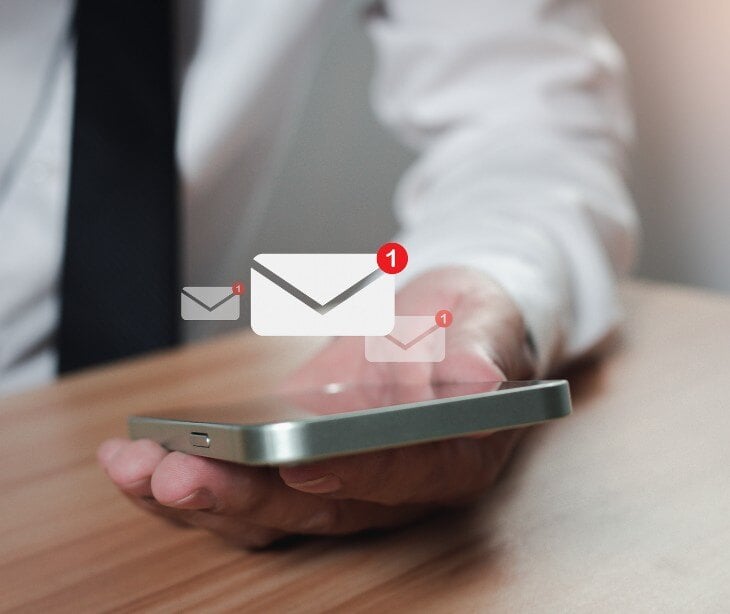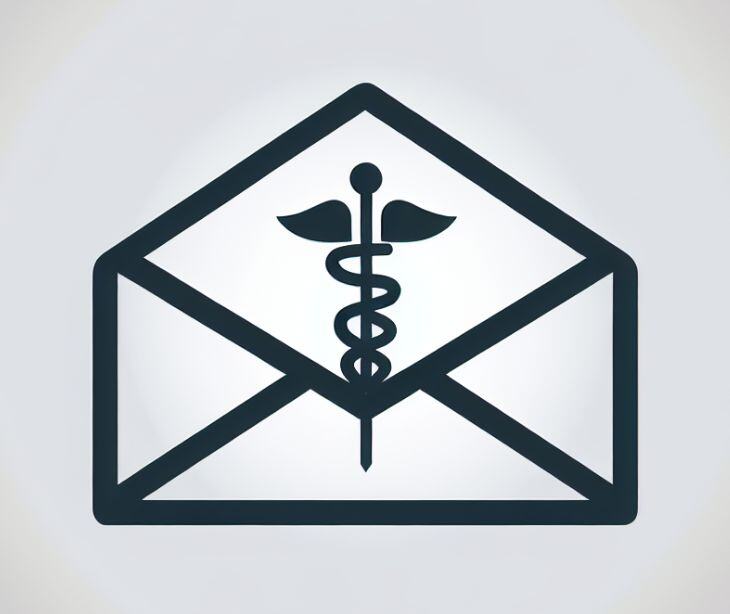
HIPAA does permit healthcare providers to discuss health issues with patients through email. However, providers must take extra security measures to ensure the privacy and security of the healthcare information being shared.
Considerations before sending emails that discuss health concerns
- Privacy and security: Healthcare providers should use secure HIPAA compliant email solutions like Paubox to maintain confidentiality and security of patient health information.
- Informed consent: Patients should provide informed consent before engaging in email communication about their health. Consent forms should outline the risks, benefits, and limitations to ensure patients understand the implications of using email for health communication.
- Suitable for non-urgent matters: Email communication is best suited for non-urgent matters, such as prescription refill requests, discussing test results, or providing general health information. For emergency situations, patients should be encouraged to contact their healthcare providers through more immediate means, such as phone calls or in-person visits.
- Clear communication boundaries: Establish clear boundaries and expectations for email communication, including availability, expected response times, and what can be discussed via email.
- Recognize limitations: Email has limitations, including the absence of visual cues and the inability to conduct physical examinations. Some health issues may require in-person evaluations, and email is not a substitute for those situations.
- Documentation: Email conversations can serve as written documentation of healthcare discussions, which is useful for patients and healthcare providers by serving as a reference for future appointments and decisions.
- Follow-up: After providing important information or recommendations through email, healthcare providers should encourage patients to follow up with any questions or concerns.
What health issues can be discussed via email?
According to Cambridge University, “Healthcare professionals use email for a multitude of purposes: for both formal and informal communications with colleagues and patients; to perform administrative duties; to conduct routine communication; and to undertake research and improvement projects.
For patient communication, email is particularly useful for discussing non-urgent health issues and administrative matters with patients. While the specific topics that can be discussed via email may vary based on the healthcare organization's policies and the applicable regulations in your region, here are some examples of health-related topics that are typically suitable for email communication:
- Prescription refills: Patients can request prescription refills through email, making it a convenient way to manage ongoing medication needs.
- Appointment scheduling: Patients can inquire about available appointment slots, request appointment changes, or confirm upcoming appointments through email.
- Test results: Non-urgent test results, such as routine blood work or imaging reports, can be shared with patients via email. Ensure that the email platform is secure to protect sensitive data.
- General health information: Patients can seek general health information, advice on managing chronic conditions, or tips for healthy living through email.
- Medication questions: Patients can ask questions about their medications, including potential side effects, dosage instructions, and alternatives.
- Administrative inquiries: Addressing administrative matters such as billing questions, insurance inquiries, or medical record requests can be handled through email.
- Follow-up on previous discussions: Patients may have follow-up questions or require clarifications related to prior in-person or telephone consultations.
- Referrals and specialist appointments: Patients might inquire about the process of obtaining referrals to specialists or ask for assistance with scheduling appointments with other healthcare providers.
- Non-urgent medical advice: Some non-urgent medical concerns or inquiries about minor symptoms can be addressed through email. However, a detailed evaluation may require an in-person or telehealth visit.
- Wellness tips: Providers can share general wellness tips, preventive care advice, and recommended screenings with their patients to promote a healthy lifestyle.
Related: Empowering patients through HIPAA compliant email solutions
How to send HIPAA compliant email
- Secure patient information in transit and at rest: Use secure email solutions that encrypt messages and attachments in transit and at rest.
- Enter into a business associate agreement: If using a third-party email solution, a business associate agreement (BAA) is required.
- Set up policies and procedures: An internal policy for HIPAA compliant email ensures all employees know their responsibilities regarding handling and transmitting protected health information (PHI) electronically.
- Train your staff on secure email best practices: Healthcare organizations should train employees on policies and procedures for sending HIPAA compliant emails.
Go deeper: How to send HIPAA compliant emails
FAQs
What security measures are needed for email communication?
Healthcare providers must use encrypted and secure email solutions, such as Paubox Email Suite, to ensure the privacy and security of PHI.
Can healthcare providers initiate email conversations with patients?
Yes, healthcare providers can initiate email communication, but only after obtaining informed consent from the patient.
What should patients know about the security of their health information when communicating via email?
Patients should be informed that, while healthcare providers use secure systems, no electronic communication method is completely risk-free. It's important to use the provider's secure email platform and avoid sending health information through personal email accounts.
Subscribe to Paubox Weekly
Every Friday we'll bring you the most important news from Paubox. Our aim is to make you smarter, faster.



